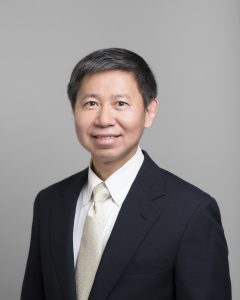 Baochun Li
Baochun Li
Title: Federated Learning: Architectures, Key Algorithms, and Future Outlook
Abstract
In the era of Internet of Things and Big Data, large volumes of data has been generated by millions of mobile devices and sensors at the edge of the Internet on a daily basis. Resolving the conflict between the need for
analyzing such data and the requirements for preserving user privacy has always been a balancing act. Federated learning, as a distributed learning paradigm involving both the edge and the cloud, has been touted in the recent years as a suitable way to achieve a balanced trade-off between using data and preserving data privacy. It offers us the best of both worlds: privacy-preserving training of machine learning models. Yet, by performing local training and collecting model updates from edge devices, federated learning incurred a large amount of communication overhead, and has to address the problems of systems and statistical heterogeneity. In this talk, we take a deep dive in the current challenges of federated learning, present our a preview of our preliminary work, and offer fresh
insights on future research that is urgently needed in this topic.
Bio
Baochun Li received his B.Engr. degree from the Department of Computer Science and Technology, Tsinghua University, China, in 1995 and his M.S. and Ph.D. degrees from the Department of Computer Science, University of
Illinois at Urbana-Champaign, Urbana, in 1997 and 2000. Since 2000, he has been with the Department of Electrical and Computer Engineering at the University of Toronto, where he is currently a Professor. He holds the
Bell Canada Endowed Chair in Computer Engineering since August 2005. His research interests include cloud computing, distributed systems, data center networking, and wireless systems.
Dr. Li has co-authored more than 370 research papers, with a total of over 18000 citations, an H-index of 78 and an i10-index of 256, according to Google Scholar Citations. He was the recipient of the IEEE Communications Society Leonard G. Abraham Award in the Field of Communications Systems in 2000. In 2009, he was a recipient of the Multimedia Communications Best Paper Award from the IEEE Communications Society, and a recipient of the University of Toronto McLean Award. He is a member of ACM and a Fellow of IEEE.
